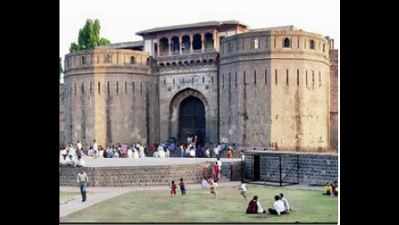Trending
This story is from September 30, 2016
What's in a name? A lot when it comes to Pune
What's in a name? A lot when it comes to Pune

PUNE: The world may agree with the Bard, but Puneites will not when it comes to their city's name. Pune has been rechristened a dozen times over centuries but, barring one exception, the “holy“ reference in the new names has never been skipped. During the Rashtrakuta dynasty, the city was referred to as “Punnaka“ and “Punyapur“, while the copper plates of 758 AD and 768 AD show that the Yadava dynasty had renamed it as “Punakavishaya“ and “Punya Vishaya“.“Vishaya“ means land and “Punaka“ and “Punya“ mean holy. Noted history scholar Pandurang Balkawade said the city was known as “Kasbe Pune“ when in the command of Chhatrapati Shivaji Maharaj's father, Shahaji Raje Bhosale. It became “Poona“ in the British regime in 1857 and was last changed to Pune in 1978.
The only exception was when Mughal emperor Aurangzeb renamed the city as “Muhiyabad“ sometime between 1703 and 1705 in memory of his great-grandson Muhi-ul-Milan, who died here. But the name got erased soon after Aurangzeb's death.
In his book, “Pune Nagar Sanstha Shatabdi Grantha,“ another noted history scholar M P Mangudkar cited ancient Hindu literature to say that the area along the confluence of two rivers (in this case Mula and Mutha) is considered a sacred place.
History researcher Mandar Lavate, however, asserted that Pune did not grow along the confluence of the two rivers, but only along the Mutha and has its origin in Kasba Peth. “The city got its name from the nearby Punyeshwar temple,“ he said.
Pune was also known as “Punyanagari“, “Punaka Desha“, “Punya wadi“ and “Punawadi“ but Balkawade and Lavate say there are no documents to support these names.However, they admitted that Marathi writer N V Joshi has written a book, “Punawadi to Pune“.
The only exception was when Mughal emperor Aurangzeb renamed the city as “Muhiyabad“ sometime between 1703 and 1705 in memory of his great-grandson Muhi-ul-Milan, who died here. But the name got erased soon after Aurangzeb's death.
In his book, “Pune Nagar Sanstha Shatabdi Grantha,“ another noted history scholar M P Mangudkar cited ancient Hindu literature to say that the area along the confluence of two rivers (in this case Mula and Mutha) is considered a sacred place.
History researcher Mandar Lavate, however, asserted that Pune did not grow along the confluence of the two rivers, but only along the Mutha and has its origin in Kasba Peth. “The city got its name from the nearby Punyeshwar temple,“ he said.
Balkawade, too, supported this view, saying that Punyeshwar, a Shi va temple, has been mentioned by Sant Namdev in his book, “Alandichi Panchakroshi“.
Pune was also known as “Punyanagari“, “Punaka Desha“, “Punya wadi“ and “Punawadi“ but Balkawade and Lavate say there are no documents to support these names.However, they admitted that Marathi writer N V Joshi has written a book, “Punawadi to Pune“.
End of Article
FOLLOW US ON SOCIAL MEDIA











